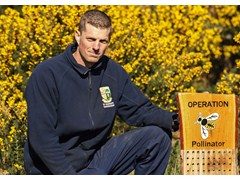
Syngenta Operation Pollinator Environmental Award Winner, Anthony Darker, hasn't been resting on his laurels at Elsham Golf Club in Lincolnshire. He has continued to develop a whole range of eco projects that has served to further enhance the environmental value of the golf course in the area.
In addition to the wonderful wildflower areas that have been created for the benefit of players and pollinating insects, importantly Anthony has also been busy providing a vital winter refuge - or hibernacula - for the bees and bug life that has been attracted.
But with only a limited budget he's been trying to come up with ways to create a range opf hibernaculum by recycling materials laying around the yard: bricks; roof tiles; old wood and logs; even old hole cups and more have been cleverly utilised.
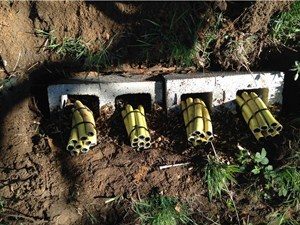
| 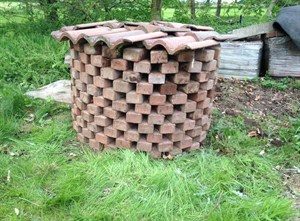
|
Pipes burried in blocks | Old bricks covered with tiles |
"Not only is it more cost effective, but reusing existing materials and supplies reduces waste and is a more ecological approach," reported Anthony.
"I have the theory if every time you want to build a birdhouse you cut down a tree, eventually we won't have any trees to put the house in!"
Anthony pointed out that though the year they end up with pallets from deliveries of turf, fertilisers and machine parts, which typically end up just getting in the way in a pile in the corner of the work shop, or used as fire wood.
"We have started to dismantle these pallets and reusing them for bee hibernaculum; be it a pallet stack filled with other recycled goods, or a wall mounted hibernacula on the side of a shed and out building.
"Log and brash piles in open south facing glades are incredibly attractive to a whole range of insects and other wildlife. And leaving standing dead wood is an excellent habitat too, since it blends into the surroundings and gives that more natural look," advised Anthony.
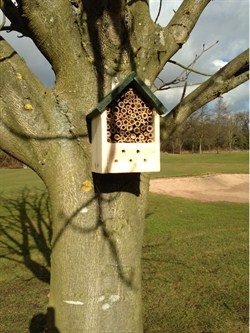
| 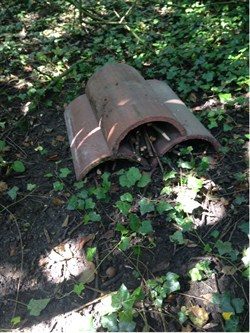
|
Wooden pallet recycled into bee hotel | Clay ridge tiles with dry sticks |
"Everyone knows that pollinating insects are important for so many things, be it farming, golf courses or your own back garden. It is already proven that, with our help, we can make a significant difference by giving them a habitat boost," he pointed out.
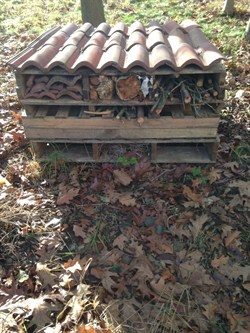
| 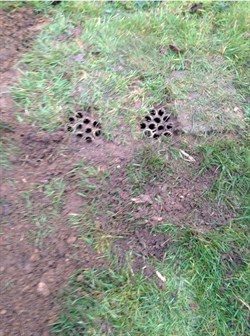
|
Old pallets filled with dry nest materials and covered with tiles | Burried pipe offcuts |
"Syngenta Operation Pollinator workshops have demonstrated ways to manage and improve your out of play areas and make your golf course more wildlife friendly," he added. "Take a look around your own work shop and club house, and see what you can come up with to get creative; the possibilities are endless to get involved and to do your bit."
| What innovative ideas for recycling old materials into ecological features have you come up with? Share your pictures and tips with others, to inspire and encourage every golf course to enhance their environmental credentials. Post your pictures on Twitter with the #operationpollinatorgolf or email them to caroline.carroll@syngenta.com |
